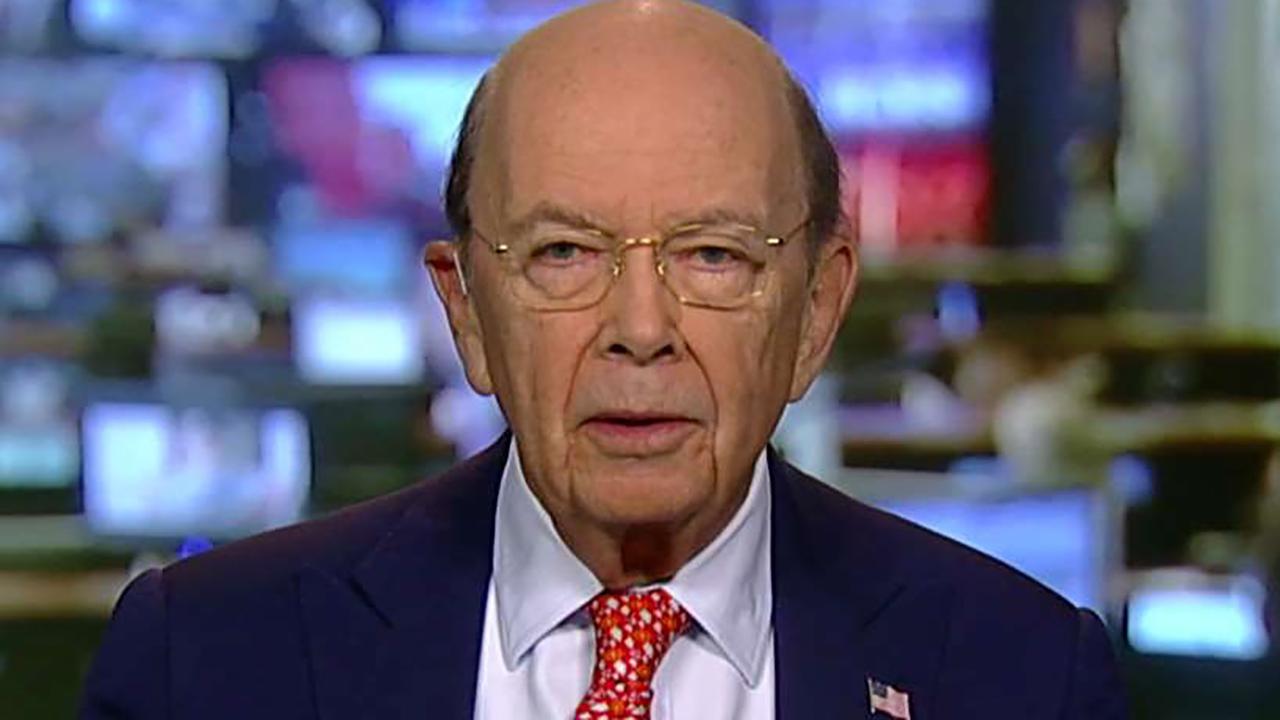Trump tariffs: Impact on beer, cars is ‘trivial,’ Wilbur Ross says
Commerce Secretary Wilbur Ross on Sunday said the impact of President Donald Trump’s recently announced tariffs on imported steel and aluminum would be minor when it comes to some of America’s favorite products: beer and cars.
“The impact on the cost of a car will be about one-half of 1% to three-quarters of 1%, depending upon the price of the car itself,” Ross told Maria Bartiromo on “Sunday Morning Futures.” “The impact on a can of beer will be a fraction of 1%. Beer sells for over $1 a can. The impact on BumbleBee tuna packages, again, trivial.”
Trump said the U.S. will set the tariffs at 25% for steel and 10% for aluminum last Thursday, causing concerns about higher prices for American consumers as well as the potential threat of retaliation from other countries.
U.K. Prime Minister Theresa May expressed “deep concern” over the tariffs during a phone call with Trump on Sunday. She told the president, “multilateral action was the only way to resolve the problem of global overcapacity in all parties’ interests,” according to a Downing Street spokesperson.
European Commission President Jean-Claude Juncker said Friday the European Union would take action if the administration settled on its plans to implement tariffs. In a tweet on Saturday, Trump went on the offensive, threatening the E.U. with a tax on its automobile imports.
Canada, the largest exporter of both steel and aluminum to the U.S., will retaliate against any tariffs, officials said Thursday, though it has yet to be seen if they would be applied to Canada and Mexico – two countries involved with America in the North American Free Trade Agreement (NAFTA) which is still in the process of being renegotiated.
Sweden’s largest home appliance maker, Electrolux, said it would postpone its planned $250 million investment in Tennessee following Trump’s tariff announcement. The company purchases all the steel it uses in its U.S. products domestically, according to Reuters.
“We are putting it on hold. We believe that tariffs could cause a pretty significant increase in the price of steel on the U.S. market,” Electrolux spokesman Daniel Frykholm said.
The Business Roundtable, a group of many of the most powerful American executives, chaired by JPMorgan CEO Jamie Dimon, decried the administration’s decision to implement the tariffs, saying it would hurt the U.S. economy, American companies, workers and consumers and result in “foreign retaliation against U.S. exporters.”
“Using ‘national security’ tools to implement tariffs could embolden other countries to impose ‘national security’ tariffs on U.S. exporters or otherwise restrict U.S. goods and services sold to their markets,” Business Roundtable President and CEO Joshua Bolten said in a statement on Thursday.
However, Ross, who acknowledged that there likely would be some sort of retaliation, such as the announcement from Europe, doesn’t believe the retaliation would be on steel “as such.”
“I think if it does on anything it’ll be some little product in a key state to try to get [Senate Majority Leader] Mitch McConnell or [House Speaker] Paul Ryan feeling some pressure,” Ross said. “I think it will be very targeted and that certainly was the approach that the Europeans took.”




















